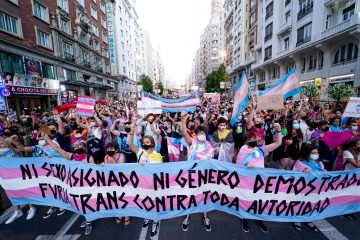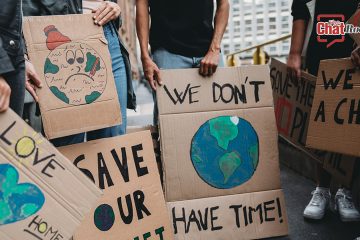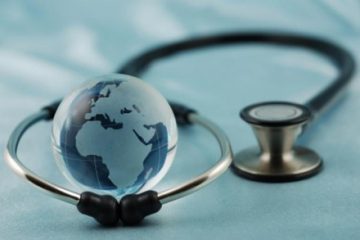By Carmen D. Mejía Velázquez
This year the World Health Summit (WHS) was held in the heart of the city of Berlin, Germany. More than 1,500 participants from 90 different countries took part in this forum where different ideas and concepts were exchanged and presented. Among the participants, decision-makers and representatives from health fields and industries were invited to address the most relevant health issues that medicine and health care systems are facing nowadays.
The M8 Alliance (a network of healthcare institutions, universities and academic institutions) provided the academic think tank of the event, supporting the accuracy of the information flow at the several workshops held during the 3 days of the Conference. The workshops focused on topics like:“Refugees’ Healthcare”, “ Consequences of global climate change” “Antibiotic-resistance, “Results of the Ebola crisis” and “Big data” among others.
The WHS opening ceremony was initiated by a great motivational speech given by Dr. Margaret Chan director of the WHO, which after more or less a month remains particularly stuck on my memory. On her speech she addressed the way that health assistance is being developed; “Instead of one-way development aid, we should advertise a cooperative relationship within institutions”. Most importantly, Dr. Chan mentioned that “it is very important to ensure that money reaches the places where it unfolds the greatest impact and not Geneva where the WHO is”. This statement was largely and greatly applauded. Thank you, Dr. Chan.
WHS assessed efforts of past health crisis.
Detlev Ganten, Chairman of the Board of Charité foundation, during a press conference before the summit, mentioned that “This year WHS’ objective was to improve global health through an open dialogue and cooperation through academic independence, research, and implementation science”. This statement seems utterly important because of the results of the past aid response provided during the Ebola crisis on the Sub-Saharan Africa. Although Ebola has been cleared from some countries, the aid response of the past months is extremely relevant for future aid epidemic responses.
However, this topic was only addressed once at the “Sustainable Research, Capacity strengthening” workshop. Prof. Dr. John Reed director of the special program for research and training in tropical diseases (WHO) mentioned that “The Ebola crisis opened some interesting issues that should be taken into consideration for the future of health implementation research. We cannot allow the next crisis to surprise us and overcome our efforts. For a health crisis as Ebola, it is essential to have functioning health infrastructures and research capacity in the affected countries. We have to start training local researchers and health workers now. We have to teach them how to do the work instead of doing it ourselves.”
In the same workshop, it was concluded that it is important to learn how to build and strengthen regional, national, institutional and individual capacities to conduct high-quality health research during infectious diseases outbreaks resulting to health emergencies. Moreover, it is also critical to assess what type of efforts would ensure sustainable research and capacity building beyond outbreaks and emergencies. In my opinion, this workshop was fascinating for young researchers to learn from past mistakes in order to change the future.
The biggest challenge in 2015?!
Another big story during the WHS came as a result of the refugee crisis that Europe is facing nowadays. M8 alliance’s, in particular, view is that the healthcare of refugees is being neglected by the European Union. According to M8 both the funding and the implementation of a sustainable healthcare for refugees need to be addressed more loudly. This was also discussed in one of the workshops, where Mrs. Roumyana Petrova-Benedict from the International Organization for Migration (IOM) showed the alarming figures of healthcare provided to refugees by European Countries. It was shocking to find out that just 5% of the countries provided the basic healthcare to refugees. Observations of the IOM showed that infectious diseases pose a significant role among the refugees, however, Non-Communicable Diseases (NCDs) such as diabetes, cardiovascular disease, and obesity, accounted for the largest health burden among refugees. This can end up in major health consequences in the future.
Moreover, according to the M8 alliance, the psychosocial field represents the biggest challenge that has not been addressed among the refugees’ community. On the response of that, Jacqueline Weekers from the IOM discussed refugees’ healthcare in urban areas. She is of the opinion that migrants per se do not have a higher health risk, but the combination of social, economic and psychological backgrounds is the one that can cause them psychological damage. She recognized the lack of access to psychiatric health care as “the greatest challenge”.
Following the conversation of Mrs. Weekers, Dr. Kenneth Miller, a psychologist and consultant of the NGO War Child Holland, recognized that far from the issue of bringing healthcare to refugees, the biggest challenge relies on integrating them into society. In his opinion, their greatest needs are not in the medical area, but in the social field of instrumentation and non-profit work. He claimed that integration of refugees in the society can change the panorama and bring changes to their health. This statement was certainly remarkable and overly discussed at the forum.
Digital health; the future is here.
Digital health was a very controversial topic discussed during the WHS. Most of the speakers stressed the idea that digital health is here for our benefit , however, we are not using it at its maximum capacity. This raises the idea that probably nowadays health systems are not even capable or prepared for its use.
The conversation around digital health was quite interesting. EU commissioner Günther Oettinger, raised the idea that new opportunities and challenges will come by bringing the digitalization of healthcare. However, he highlighted data protection as a problem and he invited advocate people to take action: “Digital health would help the effectiveness of clinical methods to elevate health quality”.
At the very end
The M8 Alliance in their final statement encouraged global decision-makers to face the following five challenges:
1. The right to health for refugees
2. Safety, solidarity, and sustainability of a global health care
3. General health protection (Universal Health Coverage)
4. Climate change and health
5. Digital Health
In conclusion, WHS provided a mouthpiece for innovative ideas for the greatest challenges that global health faces today. WHS is a fascinating insight into the large, interdisciplinary field of global health where students and young leaders in global health need to participate.



0 Comments